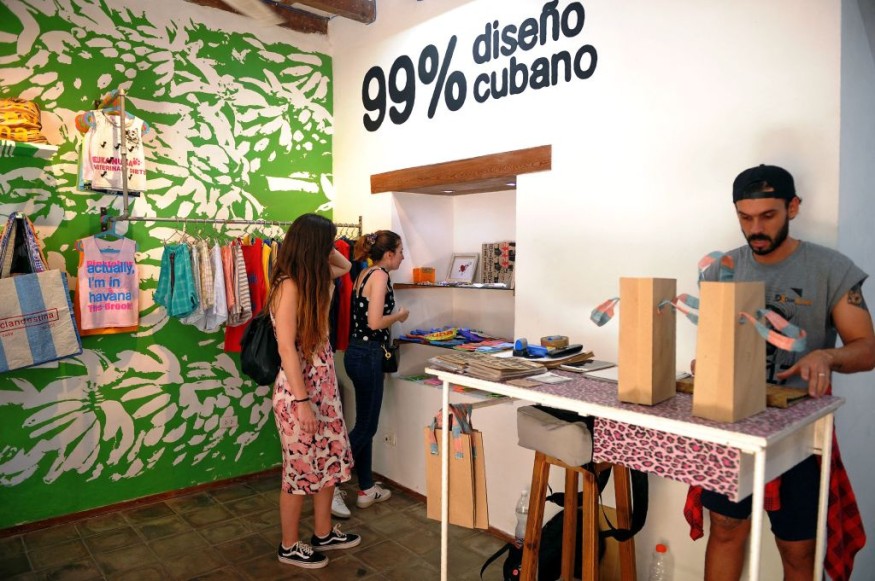Joe Biden Administration Allows Cuba Small Businesses to Open, Access US Bank Accounts Online

In a bid to bolster private businesses on the island, the Joe Biden administration has made significant strides by lifting certain financial constraints imposed on Cuba, according to Al Jazeera.
This move, unveiled on Tuesday, marks a pivotal shift, allowing independent entrepreneurs in Cuba access to US-based online banking services to fortify their ventures.
Alongside this initiative, additional measures are being rolled out to enhance internet-based services and broaden the scope of financial transactions available to private enterprises.
According to a statement released by the US Department of the Treasury, these regulatory adjustments are geared towards fostering internet freedom in Cuba, supporting the burgeoning independent Cuban private sector, and facilitating wider access to essential financial services for the Cuban populace.
READ NEXT : Cuba Removed from US State Department's List of Non-Cooperating Countries in Counterterrorism Efforts
Policy Changes to Aid the Cuban People
In a concerted effort to extend support to the Cuban populace, the Joe Biden administration embarked on a series of policy reforms in 2022, CNN reports.
These reforms, which included the reinstatement of the Cuban Family Reunification Parole Program and enhancements in consular services, underscored a commitment to uplift the lives of Cubans.
The latest step taken by the Treasury Department in amending Cuban asset control regulations further solidifies this commitment.
The timing of this announcement, arriving approximately six months before the US presidential elections, holds significance, especially considering Biden's prior electoral performance in Florida.
During the 2020 election campaign, Trump's recurrent assertions that a Biden presidency would steer the US towards socialism struck a chord with Cuban Americans, amplifying the political weight of Biden's decisions regarding Cuba.
A senior administration official underscored the dire economic situation in Cuba, attributing it to the mismanagement of the country's economy by the Cuban government.
Despite these challenges, the private sector emerges as a beacon of hope, with over 11,000 registered Cuba small businesses poised to capitalize on the policy changes being introduced.
Expanding Opportunities for Cuba Small Businesses
Under the revamped rules instituted by the Treasury's Office of Foreign Assets Control (OFAC), small-scale Cuban enterprises stand to benefit significantly, per The Hill.
They will gain access to a myriad of online services such as video conferencing, social media platforms, and maps, while US-based entities will be permitted to offer cloud-based services to bolster their operations.
Furthermore, OFAC is broadening the definition of "self-employed individual" to encompass "independent private sector entrepreneur," thereby extending the purview of companies eligible for reduced sanctions.
However, to qualify for these benefits, businesses must adhere to specific criteria, including a cap on the number of employees and the exclusion of government officials or Communist Party members from their ranks.
In addition to these measures, eligible Cuba small businesses will gain access to US bank accounts and payment platforms, including facilitating "U-turn" transactions through the US financial system.
Despite the anticipated economic alleviation these measures may bring, their impact on tourism remains uncertain.
Cuba's inclusion on the State Sponsors of Terrorism list has presented challenges for the tourism sector, particularly in terms of European travelers' access to the island while maintaining US visa exemptions.
The State Department's decision to remove Cuba from the noncooperation list on terrorism while retaining its status as a sponsor has sparked criticism from Cuban officials, who question the rationale behind these designations.
Responding to queries regarding Cuba's presence on the State Sponsors of Terrorism list, Joe Biden administration officials emphasized the differing processes involved in the creation of these lists.
While the State Department conducts an annual review for the inclusion or removal of countries from the cooperation list, the sponsorship list is determined by statutory criteria established through ad-hoc review.
This article is owned by Latin Post.
Written by: Ross Key
WATCH: Cuba's private businesses now able to use U.S. banks. What this means for Cuban Americans - From CBS Miami
Subscribe to Latin Post!
Sign up for our free newsletter for the Latest coverage!
















